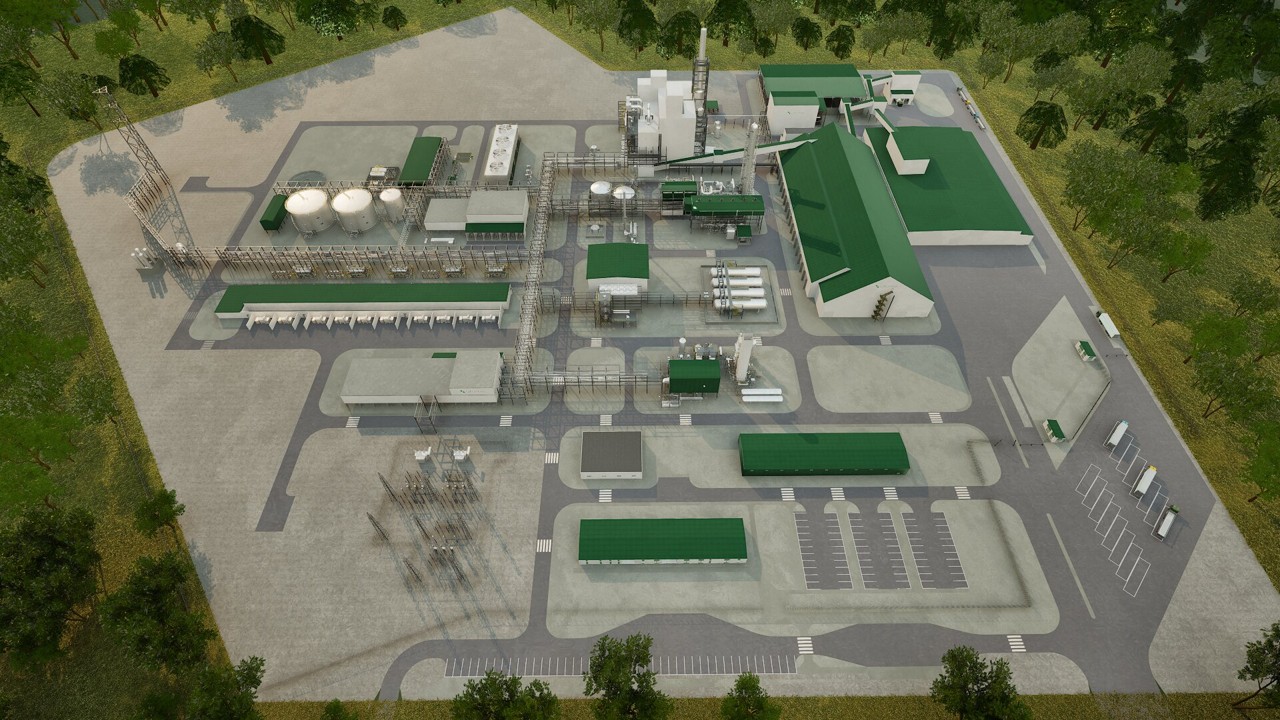Fertilizer International 524 Jan-Feb 2025

22 January 2025
BioConsortia – the uniquely positive biologicals company
BioConsortia – the uniquely positive biologicals company
California-based biologicals company BioConsortia is launching the nitrogen-fixing product Always N for 2025 season sales in New Zealand with its partner Mosaic. The product, which is based on robust, spore-forming, gram-positive microbes (Paenibacillus) fixes atmospheric nitrogen throughout the growing season by colonising the roots of corn, wheat and potatoes, as well as fruits and vegetables. Always N delivers consistent yield gains and is backed by data from more than 300 trials in Brazil, New Zealand, the US and Europe. Fertilizer International spoke with Marcus Meadows-Smith, the company’s CEO, ahead of the Fertilizer Latino Americano 2025 conference.
Introduction
Could you briefly introduce the company and its innovative nitrogen-fixing and biostimulant product portfolio to our readers – and explain the company’s plans for disrupting the fertilizer market?
“We are an R&D company. We don’t have a sales and marketing team, and our business model is to sell to the major fertilizer, crop protection, seeds and seed treatment companies”.
“Seed and crop protection companies all have their own in-house biological R&D teams. We therefore have to come out with products that are superior, higher consistency – and have developed into the world leaders at gene editing gram-positive microbes”.
“Gram-positive microbes probably mean nothing to most of your readers. These are hardy, robust organisms. We’ve carved out our niche as being the best R&D company with this type of microbe”.
“They form a spore, go dormant, become inert and can survive practically anywhere. But once they’re in the root zone, plants produce an exudate that triggers the microbe to come out of its spore form and start growing to colonise the plant”.
“We focus all our research on products that are going to be easy to use. They can be placed ‘in the can’ together with a fungicide and an insecticide seed treatment and fit into standard agronomic practice – with two years of shelf life and an additional two-year life on seed.

“We’ve even got that shelf life with spores on fertilizer granules in very harsh environments. Yet the bacteria inside remain alive and viable and ready to germinate when conditions change and it gets the signal from plant roots.
“We’re a company of over 50 scientists now, based in California, having invested over a 100 million dollars researching and developing products. That’s including those you’re interested in – nitrogen-fixing products for non-leguminous crops and biostimulants.”
Nitrogen-fixing with Always N
What are key advantages of a gram-positive microbial product like Always N and how does it function – are these game changing in your view?
“In the US, a number of nitrogen-fixing microbial products have already been launched. But they are the gram-negative from just-in-time manufacturing with a short shelf life that are then put in furrow, which is highly cost-prohibitive, or applied as an over-treatment.
“The problem with over-treatments is you often reduce the viability of the seed and germination because of getting the seed wet twice – once for the initial fungicide and insecticide treatment and then on-farm. Over treatment can also disrupt the seed company’s fungicide and insecticide treatment package that was there already.
“Whereas Always N can go on with that initial seed treatment and – being gram-positive – is very stable and easy for the grower to use. What’s spot-on therefore, and benefits the seed company in terms of sales, is that it’s delivered to the grower as part of their single integrated treatment package.
“We embarked on an R&D collaboration with The Mosaic Company, who funded the research phase for Always N, after some initial work and discoveries ourselves. This was originally to develop a fertilizer product for things like pasture grass – effectively a fertilizer granule with bacterial spores on the surface that can be broadcast.
“For seed-sown annual crops, Always N is definitely most effective applied as a seed treatment. But there are some crops, like pasture grass, tree crops, where a fertilizer granule may prove to be the better delivery mechanism.
“For agricultural inputs, it’s about robustness and ease of use in standard agronomic conditions, as no one wants to keep products in cold storage. People want two years of shelf life, not six months, otherwise you don’t have enough time in the distribution channel for delivery through retail and then onto the farm.”
Biostimulant product offering
What biostimulants are BioConsortia developing and bringing to market?
“Some very remarkable yield increases are possible by the addition of Zaffre, our biostimulant product, compared with the leading biologicals on the market today.
“Biostimulants don’t fix atmospheric nitrogen. They actually talk to the plants, producing volatile organic compounds (VOCs) like indole acetic acid (IAA) that tells the plant to grow bigger.
“IAA acts as a sort of instruction to the plant – grow your root system bigger, put on more biomass. The other thing biostimulants do is increase the ability of the plant to absorb soil nutrients”.
“They don’t create nutrients, the way nitrogen fixers do. Instead, they solubilise P and K and allow its absorption into the root system for plant growth”.
“Obviously if you’ve got soils that bind nutrients, having a microbial biostimulant like Zaffre there helps release these in soluble form for the plant to take up, that’s where it’s getting stimulation. While nitrogen fixation works in a wide range of soils, biostimulants are more soil-specific, performing better in certain soil types where that binding occurs more aggressively”.

“As I mentioned, we’re an R&D company and don’t push products through clever marketing. Instead, they have to be better than what’s on the market today – through their ease of use, higher yields and better consistency – and that’s what you see in our data.”
Partnering with Mosaic since 2020
How important is BioConsortia’s partnership with The Mosaic Company – a very high-profile fertilizer industry player – both in the US and now in Brazil?
“To be honest, nitrogen fixation might have been left on the shelf if Mosaic hadn’t come along and helped us fast-track – it was the relationship that drove the acceleration of our nitrogen-fixing products. They’re obviously now running field trials in multiple crops, in multiple countries within the Americas.
“What has evolved is that originally we thought Always N was going to be a just a fertiliser product and therefore go through Mosaic’s sales force. Whereas we’re now working together on additional routes to market.
“We’re selling the product direct to seed and seed treatment companies, which tend to be the crop protection rather than the fertiliser players. Then obviously Mosaic goes direct to some markets itself.
“Mosaic is really a great partner for the Americas where their footprint is incredibly strong. In other parts of the world, we’re looking for other partners – fertilizer, crop protection and seeds companies – and for Europe, for Asia-Pacific, for Africa, starting to talk to other fertilizer companies.
“Mosaic are very happy with the way it’s going. More recently, they’ve expanded to China, India, Vietnam and Thailand and have BioConsortia’s distribution rights there – because they’re developing what’s actually a very interesting business model, talking to millions of growers through smartphones.”
Brazil market expansion one year on
It’s just over one year now since BioConsortia announced its entry into the Brazilian market. Why target Brazil and what’s been BioConsortia’s experience of the country’s massive domestic ag market one year on?
“Always N, our first product in Brazil, took us six years to get registered. Today Brazil has fast-tracked biologicals – because they’ve seen the benefit for growers – and registration now takes just one year.
“That’s opened up the market for biologicals to come in faster. Brazil also requires efficacy data, as you don’t get a registration in Brazil if you can’t demonstrate that your product works in government-approved field trials, and that’s the process we’re going through now.
“The other thing we’ve found is that Brazilian soils are more responsive to microbial biologicals. It’s quite possible that soils in Brazilian fields are not as rich and deep as US soils, and therefore their added contribution is that much higher.
“In Brazil, we’re just starting to get results this year [2024] from the field trials we’re running and are very excited by the opportunity there. On corn, we’ve seen an 11% yield increase with our lead product at multiple locations, which is really a dramatic response to a microbial product. We’re now going into the registration phase – so will be launching products in about a year.
“We’ve a targeted approach to commercialisation and product launches, going after the big row crops to start with. That means rice in certain parts of the world, whereas in Europe it’s wheat, and corn in the US and Brazil.”





